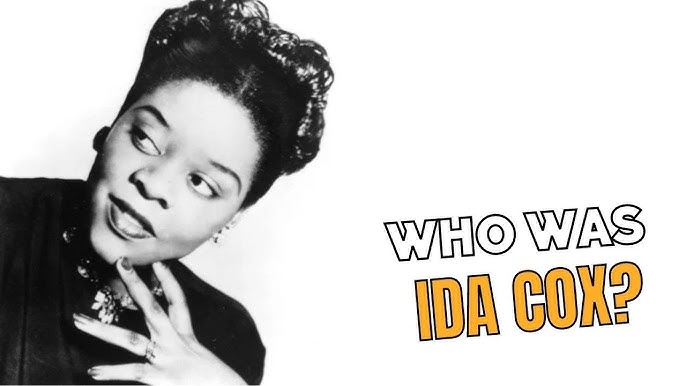Ida Cox, born on February 25, 1896, in Toccoa, Georgia, was one of the most influential blues singers of the early 20th century. Her powerful voice, poignant lyrics, and commanding stage presence earned her a prominent place in the history of blues music. Known as the “Uncrowned Queen of the Blues,” Cox was a trailblazer whose work resonated with themes of independence, resilience, and the complexities of African American life during her era.
Early Life and Beginnings
Ida Cox was born Ida Prather into a humble family in rural Georgia. Her early exposure to church music laid the foundation for her love of singing. By her teenage years, Cox began performing in local vaudeville shows, developing her craft and gaining experience in front of live audiences. Her natural talent and charisma soon propelled her to join traveling minstrel shows, which were among the primary outlets for African American entertainers in the early 20th century.
Rise to Stardom
In the 1920s, the blues genre exploded in popularity, and Ida Cox emerged as one of its most prominent voices. She signed with Paramount Records in 1923, a groundbreaking move that enabled her to reach a broader audience. Over the next decade, Cox recorded numerous hit songs, including “Wild Women Don’t Have the Blues,” “Mean Papa Turn in Your Key,” and “Last Time Blues.” Her songs often tackled themes of love, heartbreak, gender roles, and societal struggles, resonating deeply with her listeners.
Cox’s “Wild Women Don’t Have the Blues” became an anthem for female empowerment, addressing the challenges and resilience of women who defied societal expectations. Her ability to blend personal experiences with universal themes made her a relatable and enduring figure in the blues world.
The Theater Owner and Businesswoman
Beyond her music, Ida Cox was a savvy businesswoman who demonstrated remarkable independence for a woman of her time. She managed her own touring revue, “Ida Cox and Her Raisin’ Cain Company,” which featured a blend of music, comedy, and drama. As the troupe’s manager and star performer, Cox showcased her entrepreneurial spirit and commitment to creating opportunities for African American artists.
Challenges and Resilience
The Great Depression of the 1930s brought significant challenges to the music industry, and Ida Cox’s career was no exception. However, she adapted by continuing to tour and perform, even as the commercial viability of the blues genre waned. Despite the setbacks, Cox remained a beloved performer, captivating audiences with her authentic voice and dynamic stage presence.
Later Years and Legacy
Ida Cox retired from active performing in the late 1940s following a stroke. However, her contributions to the blues were far from forgotten. In 1961, she made a triumphant return to the studio, recording her final album, “Blues for Rampart Street,” accompanied by the Coleman Hawkins Quartet. The album was a critical success and a testament to her enduring artistry.
Ida Cox passed away on November 10, 1967, in Knoxville, Tennessee. Her influence on blues music and her pioneering role as a female artist remain an integral part of her legacy. She paved the way for future generations of women in blues and other genres, inspiring artists to express their truth with courage and authenticity.
Honoring Ida Cox’s Memory
Today, Ida Cox is celebrated as one of the great voices of classic blues. Her recordings continue to inspire musicians and listeners alike, offering a window into the soul of an artist who sang with passion, grit, and unwavering honesty. Her life story serves as a powerful reminder of the transformative power of music and the resilience of the human spirit.
Ida Cox’s enduring legacy cements her place as a true icon of American music history.


Comments are closed